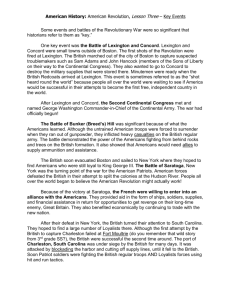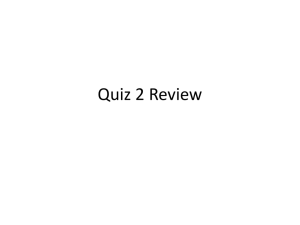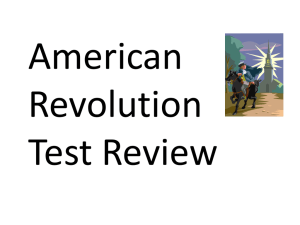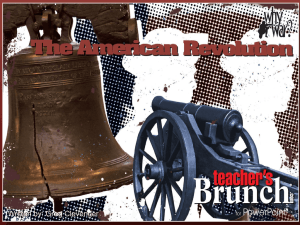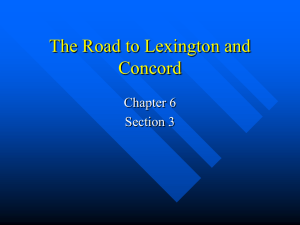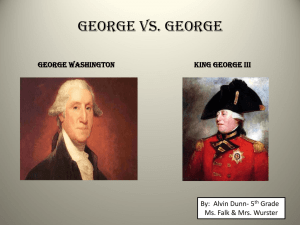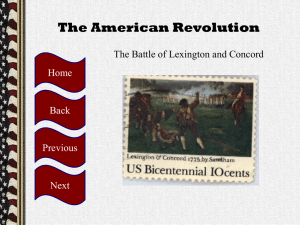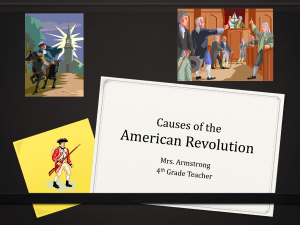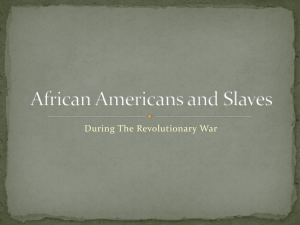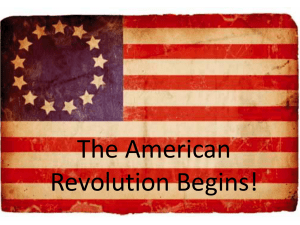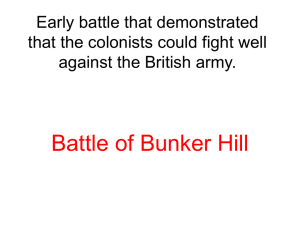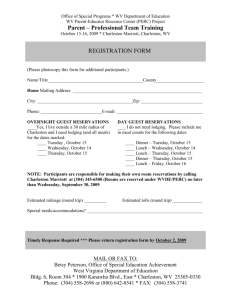Key Battles of the Revolutionary War
advertisement
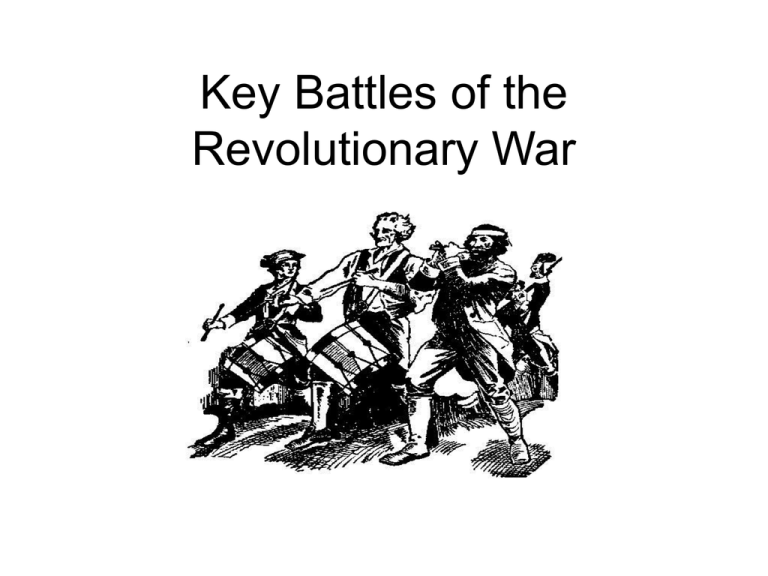
Key Battles of the Revolutionary War Lexington and Concord • British General Thomas Gage got word that the colonists were storing weapons in Concord, near Boston. • He also heard that 2 of the Sons of Liberty, John Hancock and Samuel Adams were staying in the nearby village of Lexington. So what did Gen. Gage do? • He sent out British troops to find the weapons in Concord • Then go to Lexington to capture Hancock and Adams. So what happened when the British got to Lexington? • Paul Revere and William Dawes had gone to Lexington the night before to warn Hancock and Adams, so they were able to escape. • Then they rode to Concord and the weapons were moved before the British arrived. Was there a battle? • Yes, 4000 minutemen (colonists ready to fight in a minutes notice) fought the 700 British soldiers. • 74 British soldiers were killed and 174 wounded. • 93 Minutemen died that day, but this was seen as a victory for the Patriots. • This battle happened in 1775 before the Declaration of Independence was written. So was this battle important? • This event is sometimes referred to as the “shot heard round the world” because of the impact of the American revolutionary ideas on other nations. • The second Continental Congress met and named George Washington Commander-inChief of the army that gathered around Boston after Lexington and Concord. The Battle of Bunker Hill • Took place in Boston on June 17, 1775. • Was one of the fiercest battles of the war. • Both sides wanted this high ground. The colonists needed it to help defend Boston. • To save bullets, the colonists were told “Don’t fire until you see the whites of their eyes” Who won the Battle of Bunker Hill? • The British eventually took the Hill, but they lost over 1000 soldiers that day. Americans learned a lot from this battle! • The battle demonstrated the power of the Americans fighting from behind trees and rocks. • Americans would need allies to supply ammunition. The Siege of Charleston • The British attack on Charleston began April 13, 1780. • First attempt failed because of the tides and the resilience of the palmetto log fort that became known as Fort Moultrie. • Peter Timothy stood watch in St. Michael’s steeple in downtown Charleston. • He watched the British who were on James Island. So who won Charleston? • Charleston was attacked by blockading the harbor and cutting off the supply lines. • After 42 days of fighting, Charleston surrendered to the British. • The British occupied Charleston for 2 1/2 years . • They took over such beautiful homes as the Miles-Brewton House on King Street. • Charleston people came to hate the British armies’ cruel ways. Battle of Charleston What happened at Hudson Bay? Battle of Saratoga • This was the turning point of the war for the American Patriots. • American forces under the command of General Gates defeated the British in their attempt to split the colonies at the Hudson Bay. • The French decided to join us and help beat the British when they realized the colonists might have a chance to win. • The French gave us financial aid and the help of the French navy. Cowpens • This was an important battle in South Carolina and showed the cooperation of the Continental Army and the irregular partisan forces. • The partisans led the attack and then fled the field tricking the British into thinking they had retreated. They lured them into the range of the regular American army. • The British were defeated and retreated toward Virginia. This was seen as a great victory in the south! Victory at Yorktown • Yorktown was the final battle of the war!! • The French navy assisted George Washington and his army by blocking the harbor. • The blockade prevented British ships from entering the harbor and the British army, camped in Virginia waiting for transport to winter quarters, from escaping. • Surrounded by American and French forces, the British were defeated and surrendered. Yorktown ended the war. • Even though some fighting went on for a few more years, the war was won at Yorktown. • The treaty of Paris was signed in April, 1782 officially ending the war. America was a free, United States. Cornwallis’s British Army surrenders to George Washington at Yorktown
